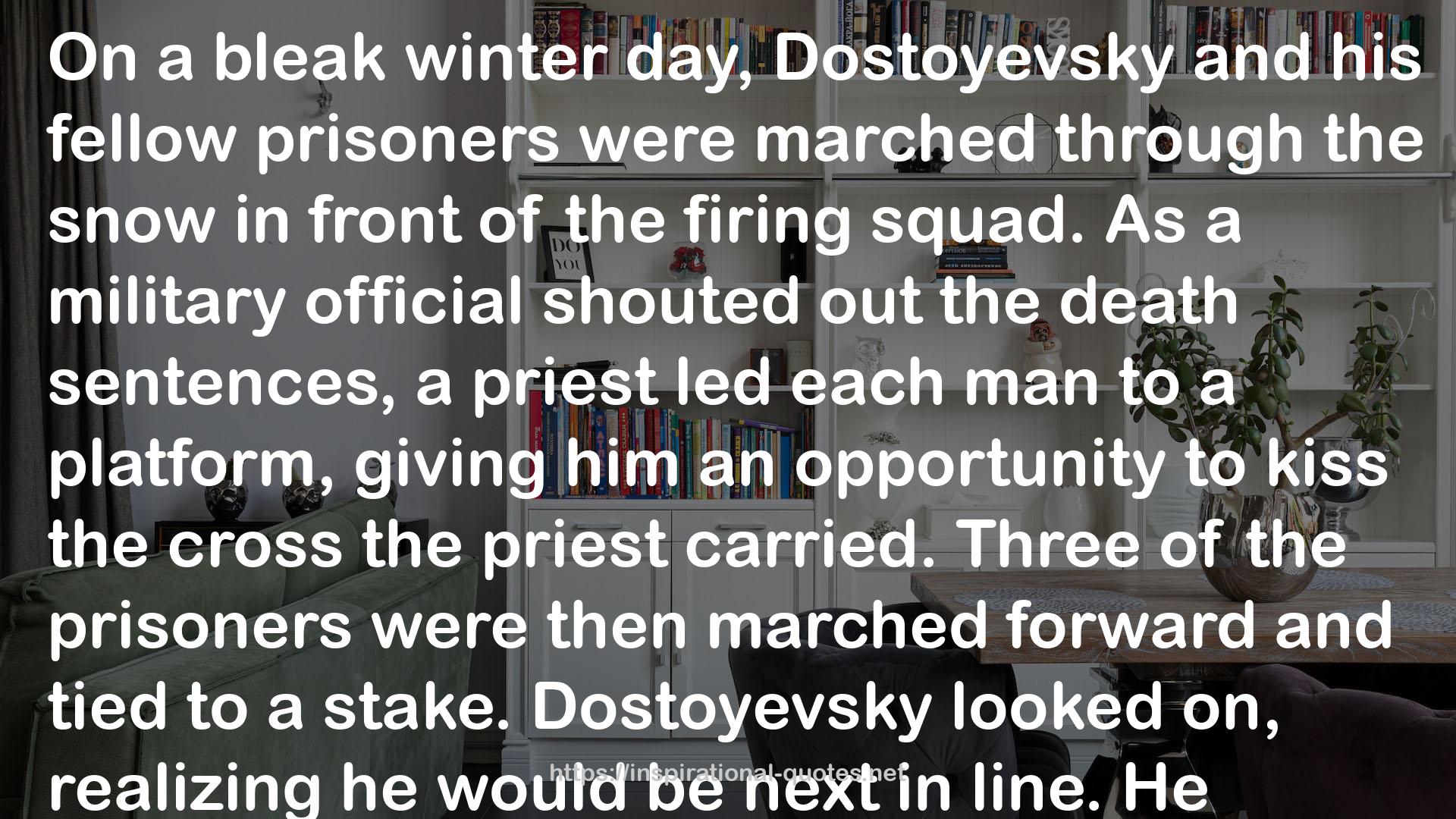" On a bleak winter day, Dostoyevsky and his fellow prisoners were marched through the snow in front of the firing squad. As a military official shouted out the death sentences, a priest led each man to a platform, giving him an opportunity to kiss the cross the priest carried. Three of the prisoners were then marched forward and tied to a stake. Dostoyevsky looked on, realizing he would be next in line. He watched the soldiers pull the men’s caps down over their eyes. He felt revulsion in his stomach as the firing squad lifted their rifles, adjusted their aim, and stood ready to pull the triggers. Out of suffering and defeat often comes victory. Frozen in suspense, Dostoyevsky waited for what seemed like a lifetime. Then he heard the drums start up again. But they were beating retreat! He watched, stunned, as the firing squad lowered their rifles and the soldiers removed the prisoners’ caps from their eyes. Their lives—and his—would be spared.2 Immediately after this incident, Dostoyevsky wrote a letter to his brother about the change the experience had worked in him: “When I look back on my past and think how much time I wasted on nothing, how much time has been lost in futilities, errors, laziness, incapacity to live; how little I appreciated it, how many times I sinned against my heart and soul—then my heart bleeds. Life is a gift. … Now, in changing my life, I am reborn in a new form. Brother! I swear that I will not lose hope and will keep my soul and heart pure. I will be reborn for the better. That’s all my hope, all my consolation! "
― Charles W. Colson , The Good Life
